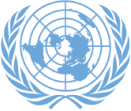Statement by H.E. Ambassador Michael Ten-Pow at the Special Meeting of the Economic and Social Council (ECOSOC) on the "Aftermath of recent hurricanes: Achieving a risk-informed and resilient 2030 Agenda"
Thank you Madame Chair,
Let me first of all through you commend the President of ECOSOC for convening this special meeting of the Council. It is heartening to see so many colleagues in attendance that we’ve spilled over into an afternoon session. I see this as an expression of the solidarity of the international community with those countries of the Caribbean that are affected by the recent hurricanes.
I also wish to thank each of the distinguished speakers we heard this morning, including the Assistant Secretary-General of CARICOM, Dr Douglas Slater, and the members of the panel, for a very constructive discussion on how to enhance the effectiveness of response, recovery and development efforts in the aftermath of the recent hurricanes in the Caribbean.
Madame Chair, my own country, Guyana, is fortunate to be outside the Caribbean hurricane belt and we have demonstrated our solidarity with our Caribbean brothers and sisters who have been affected. Within the limits of our capacity and resources, Guyana has deployed multiple container-loads of food supplies to the Caribbean Emergency Management Agency (CDEMA) for distribution in those territories where the need is most urgent. Lumber for rebuilding is being prepared for dispatch and Guyanese technicians have been sent to assist with the reconstruction of electrical transmission and distribution lines in Anguilla. In addition, the private business sector and ordinary people in Guyana have made individual donations to the relief effort, while the Government of Guyana has pledged an initial sum of $100,000 to the relief and reconstruction effort.
Madam President,
While emergency and relief supplies and services are what are needed now in the immediate aftermath of the hurricanes, the focus during rebuilding should be on developing resilience to extreme weather-related events. Previous speakers have described many of the actions – some of them very concrete actions - that can and must be taken to develop resilience in the small island developing States of the Caribbean, but I’d like to return briefly to one or two of them.
First, reconstruction and strengthening of resilience take money and, as we have heard, greater access to financing on concessional terms is crucial. In that connection, the reclassification of CARICOM member States - some of them to the upper middle income bracket - despite their development gaps and their vulnerability to economic shocks and natural disasters has had the effect of limiting their access to the concessional financing needed for reconstruction and for the strengthening of their resilience. We therefore strongly support efforts to ensure that the particular vulnerabilities of SIDS members, including CARICOM member States, and their many development gaps are taken into account by the international financial institutions when determining their income classification.
Second, the high debt levels of many CARICOM member States (which Alicia Barcena spoke about so eloquently this morning) make concessional financing all the more vital. That is why we welcome the proposal put forward by ECLAC for a programme under which debt both bilateral and multilateral could be swapped or discounted for projects to promote climate adaptation and mitigation of the impacts of climate change. Alicia also spoke about the establishment of a Caribbean Resilience Trust Fund, another useful and innovative idea that Guyana would also strongly support.
A third area where action is needed – and maybe this has not received as much attention as the other two points - is better coordination and streamlining of the work being done by the different agencies, programmes and units within the United Nations system in support of SIDS and low-lying coastal developing countries. The fragmentation of these commendable efforts, and in some cases the under-resourcing of units, leads to duplication, overlapping mandates and in some cases inefficiencies. The Joint Inspection Unit has made a number of useful recommendations following its review of the support provided to SIDS by the United Nations system. One of these recommendations is to strengthen the coordinating role of the Inter-Agency Consultative Group on Small Island Developing States. We hope that the findings and recommendations of the JIU will be taken into account as part of the Secretary-General’s reforms and as we seek to maximize the effectiveness of the mechanisms in place to provide support to SIDS and low-lying coastal developing States, including those in the Caribbean.
In conclusion, Madam President, the link between global warming and the increasing frequency and severity of climate-related events has now been demonstrated beyond doubt. This means that all of our efforts will be in vain if we do not preserve the gains achieved in the Paris Agreement to combat climate change. We see the evidence every day all around us. It is therefore no longer enough to just preserve our hard won gains. We need to keep advancing if this generation is to have any chance of leaving a viable and liveable planet for our children and grandchildren.
I thank you.


